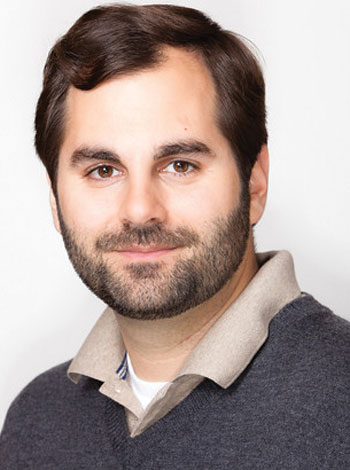Michael C. Frank
 Stanford University, USA
Stanford University, USA
What does your research focus on?
I study the intersection between social cognition and language acquisition: I try to understand how the social context of interactions between children and caregivers provides information for children to learn the meanings of words and how they go together in sentences.
What drew you to this line of research? Why is it exciting to you?
I’ve always been someone who is interested in language and wordplay, and at a certain point it occurred to me just how strange it is that we’re able to communicate with each other at all. From that point it was a short step to studying the emergence of language in children: how they go from being little nonlinguistic lumps to mobile, communicative toddlers in such a short amount of time. I am also compelled by the basic disciplinary questions about learnability and the structure of our linguistic representations. I think that the study of communication and language learning is a way of making progress on both of these issues — the origins of human communication and the structure of language — at the same time.
Who were/are your mentors or psychological influences?
I’ve been incredibly lucky to have had many wonderful mentors. As a freshman in college, I stumbled into the lab of Lera Boroditsky (a grad student at Stanford at the time); she got me passionate and excited about using experiments to understand human language. Then Michael Ramscar (also at Stanford) set me on the path toward studying development and particularly the learning mechanisms that underpin language acquisition. After a year with Scott Johnson at NYU, I entered Ted Gibson’s lab at MIT. Ted is an incredible mentor: generous, supportive, empirically minded, and extremely grounded. His guidance — in combination with computational training in Josh Tenenbaum’s lab — really helped me sharpen my ideas and set me on the path I’m on today.
To what do you attribute your success in the science?
I try really hard not to lie to myself about my data. Too often it’s easy to get reviews back on a paper and think that the reviewers have made a big mistake, that they are wrong and you are right. It’s much harder to accept that what you’ve done is flawed or incorrect or overstated from someone else’s point of view and that it needs to be changed. I think in this sense I’m lucky because I’m always trying new stuff and so my experiments almost always fail. As a consequence I’ve never had a problem with getting too attached to any particular result, and I think that’s helped me deal with challenging feedback and move on.
What’s your future research agenda?
I think there is a tremendous need for technical and methodological advances in developmental psychology. Too often the scope of our theories is determined by the precision of our measures. Right now I am pushing to develop and exploit a couple of new methods, including eye-tracking and head-mounted camera methods for children and internet-based testing methods for adults. I think these kinds of richer data sources (especially when combined with computational models) can be really useful in formulating more precise theories.
Any advice for even younger psychologists? What would you tell someone just now entering graduate school or getting their PhD?
It’s very important to consider goals for your training very explicitly: How can you become the scientist you want to be? Whether you are considering what program to attend, what courses to take, or what projects to start, you can then ask yourself how that action helps you achieve your goals. This may seem banal or obvious from the outside, but it is remarkably easy to take on projects, courses, or activities because they seem fun (or out of a sense that they are the right thing to do), without considering how they lead toward a coherent goal.
What publication you are most proud of or feel has been most important to your career?
Frank, M. C., Goodman, N. D., & Tenenbaum, J. (2009). Using speakers’ referential intentions to model early cross-situational word learning. Psychological Science, 20, 578–585.
I am very proud of this publication because it was in the process of modeling cross-situational learning that I first began to think about the incredibly important role social information could play in language learning (and the immense gaps in our knowledge about how to describe this role formally). The paper is chock-full — maybe too full! — of ideas about how a model like ours could be applied to corpus and experimental data. Once we started thinking about these kinds of applications we began to understand how big and interesting a problem it was that we had tackled. The work in this paper has really led to most of the ideas I find myself working on several years later.





APS regularly opens certain online articles for discussion on our website. Effective February 2021, you must be a logged-in APS member to post comments. By posting a comment, you agree to our Community Guidelines and the display of your profile information, including your name and affiliation. Any opinions, findings, conclusions, or recommendations present in article comments are those of the writers and do not necessarily reflect the views of APS or the article’s author. For more information, please see our Community Guidelines.
Please login with your APS account to comment.